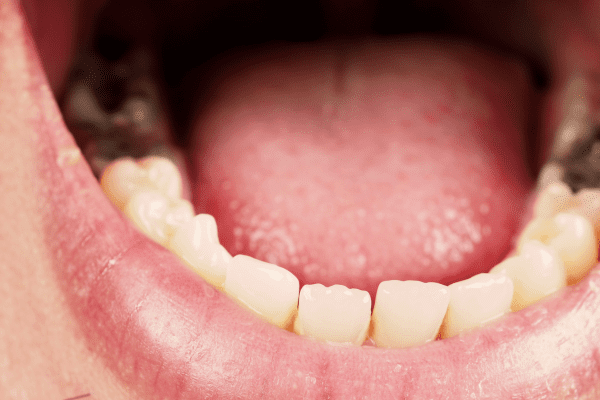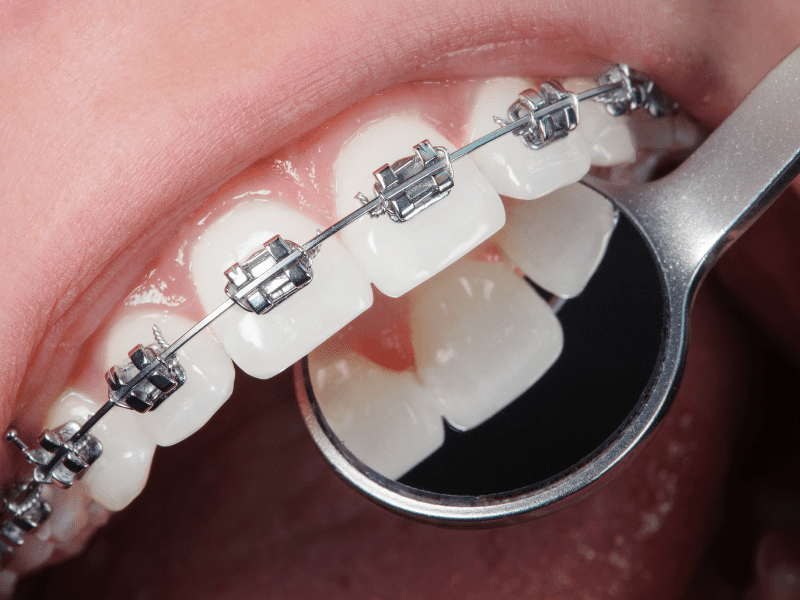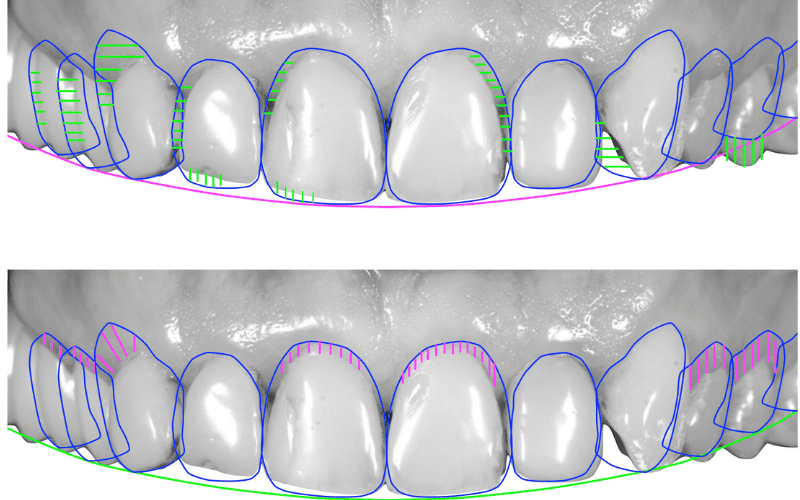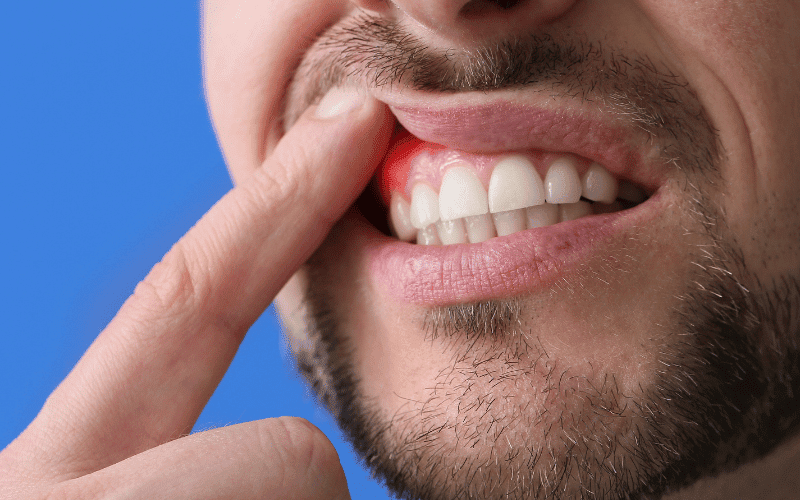In a world where sugar is a staple in most diets, it’s crucial to understand its impact on our dental health. Tooth decay is a widespread health issue directly influenced by our sugar consumption.
In this post, West Coast Dental Care explores the relationship between sugar intake and the development of tooth decay. We delve into the science behind how sugar affects our teeth and the preventive measures necessary to maintain oral health.
The role of sugar in tooth decay
Tooth decay is a widespread issue globally, and it’s closely linked to how much sugar we consume. Below we explore the complex interaction between sugar, the bacteria in our mouth, and the resulting tooth decay.
Bacterial metabolism and acid production: The human mouth is home to many microorganisms, including bacteria like Streptococcus mutans. These bacteria break down dietary sugars (sucrose, glucose, fructose) into acids, initiating tooth decay.
Enamel erosion and cavity formation: The acids from bacterial metabolism erode tooth enamel, leading to mineral loss (mainly calcium and phosphate) and the formation of subsurface lesions. Frequent sugar intake exacerbates this, potentially causing visible cavities.
The role of sugar frequency in tooth decay: The frequency of sugar consumption plays a crucial role in tooth decay. Regular intake of sugary items prolongs acid exposure, heightening the risk of enamel damage and cavities.
Modifying factors in sugar-induced tooth decay: Good oral hygiene (brushing, flossing) and saliva help combat sugar’s effects on teeth. Saliva neutralises acids and aids enamel remineralisation. Fluoride, from toothpaste or water, also strengthens enamel against acid erosion.
Types of sugars and their impact
Understanding the different types of sugars and their specific impacts on dental health is crucial in managing and preventing tooth decay.
Free sugars: the primary culprit
Free sugars, including added sugars and those naturally present in honey, syrups, and fruit juices, are easily accessible to oral bacteria, making them particularly harmful to dental health. They are prevalent in processed foods, sweets, and beverages.
Immediate bacterial access: These sugars are readily available for oral bacteria, which quickly metabolise them into acids.
High cariogenic potential: The acids produced from free sugars are more concentrated and lead to rapid demineralisation of tooth enamel, increasing the risk of cavities.
Frequent consumption concerns: Regular intake of foods and drinks with free sugars means more frequent acid attacks on the teeth, leading to continuous demineralisation.
Sugars in whole fruits and vegetables: a lesser evil
The sugars naturally found in whole fruits and vegetables pose a lesser risk to teeth for several reasons:
Lower accessibility for bacteria: The structure of whole fruits and vegetables means that sugars are less readily available to mouth bacteria, reducing the speed and intensity of acid production.
Natural fibre content: Fruits and vegetables are high in fibre, which stimulates saliva flow during chewing. Saliva helps neutralise acids and aids in remineralisation of the teeth.
Nutritional benefits: These foods also provide essential nutrients that contribute to overall health, including oral health.
The role of processing and food form
How the food is processed or consumed also plays a role in its impact on dental health:
Juices and smoothies: When fruits are juiced or blended into smoothies, the sugars become more accessible to bacteria, increasing the risk of tooth decay compared to consuming whole fruits.
Dried fruits: Similarly, dried fruits, due to their concentrated sugar content and sticky texture, can adhere to teeth and provide a prolonged sugar source for bacteria.
Intrinsic vs. extrinsic sugars
Understanding the distinction between intrinsic sugars (those naturally present within the cellular structure of foods) and extrinsic sugars (those added to foods or present in juices) is vital:
Intrinsic sugars: Found in whole fruits and vegetables, they are less likely to cause tooth decay.
Extrinsic sugars: These include both added sugars and sugars in juices, which are more harmful to dental health.
The role of saliva
Saliva plays a vital role in oral health. It helps neutralise the acids produced by bacteria and also aids in remineralising the teeth, which can reverse early signs of tooth decay. However, when the frequency of sugar intake is high, saliva can’t fully counteract the acid’s effects.
Preventive measures
Preventing tooth decay involves a multifaceted approach that extends beyond just reducing sugar intake. Understanding and implementing a variety of strategies can significantly mitigate the risk of developing dental caries.
Reducing sugar intake: the first line of defence
Limiting sugar consumption is paramount in preventing tooth decay. Here’s how you can effectively manage sugar intake:
Understanding sugar limits: The World Health Organisation recommends that free sugars should constitute less than 10% of your total energy intake. For an average adult, this translates to about 50 grams (or 12 teaspoons) of sugar per day.
Identifying hidden sugars: Sugar is often hidden in processed foods, sauces, and even so-called ‘healthy’ snacks. Reading labels and being aware of the various names for sugar is crucial in managing intake.
Mindful eating and drinking: Reducing sugar intake can be achieved by swapping sugary snacks and drinks with healthier options, and consuming them less frequently, preferably with meals rather than as separate snacks.
Oral hygiene practices: a daily routine
Good oral hygiene is critical in preventing tooth decay. Here are the key practices:
Brushing with fluoride toothpaste: Brushing twice a day with fluoride toothpaste helps remove plaque and strengthen tooth enamel. Fluoride is vital for repairing early enamel erosion and preventing cavities.
Flossing regularly: Daily flossing removes plaque and food particles between teeth where a toothbrush can’t reach.
Mouthwash for additional protection: Using an antibacterial mouthwash can help reduce bacterial load and acidity in the mouth, offering an extra layer of protection.
Diet and lifestyle choices: supporting oral health
Diet and lifestyle choices play a significant role in preventing tooth decay:
Balanced diet: Eating a balanced diet rich in vitamins and minerals supports overall and oral health. Foods high in calcium and phosphate, such as dairy products, can help remineralise teeth.
Limiting acidic foods and drinks: Acidic foods and drinks can erode tooth enamel. Limiting their intake, and rinsing with water after consuming them, can be beneficial.
Staying hydrated: Drinking plenty of water, especially fluoridated water, helps maintain saliva flow, which is critical in neutralising acids and remineralising enamel.
Fluoride treatments and sealants: additional protective measures
In some cases, additional preventive treatments can be beneficial:
Fluoride treatments: Professional fluoride treatments, provided by a dentist, can strengthen enamel and make it more resistant to decay.
Dental sealants: Sealants can be applied to the chewing surfaces of back teeth where decay often starts. They act as a barrier, protecting enamel from plaque and acids.
Regular dental check-ups: catching problems early
Routine visits to a reputable dentist like West Coast Dental Care are essential for maintaining oral health:
Professional cleaning: A dental hygienist can remove plaque and tartar that can’t be removed by brushing and flossing alone.
Early detection of decay: Regular check-ups allow for the early detection and treatment of cavities before they become larger and more problematic.
Personalised advice: Our team at West Coast Dental Care can provide tailored advice on oral hygiene and diet based on individual oral health needs.
Conclusion
Understanding the connection between sugar and tooth decay is just the beginning. Implementing effective preventive measures, such as reducing sugar intake, practising diligent oral hygiene, and making smart diet and lifestyle choices, is key to protecting your teeth.
Regular dental check-ups at qualified dentists such as West Coast Dental Care play an essential role in catching and addressing problems early. Our team of experts offer professional cleaning, early decay detection, and personalised advice to ensure your oral health is always at its best. Remember, managing sugar intake and maintaining good oral hygiene are integral parts of preserving your smile for years to come.













